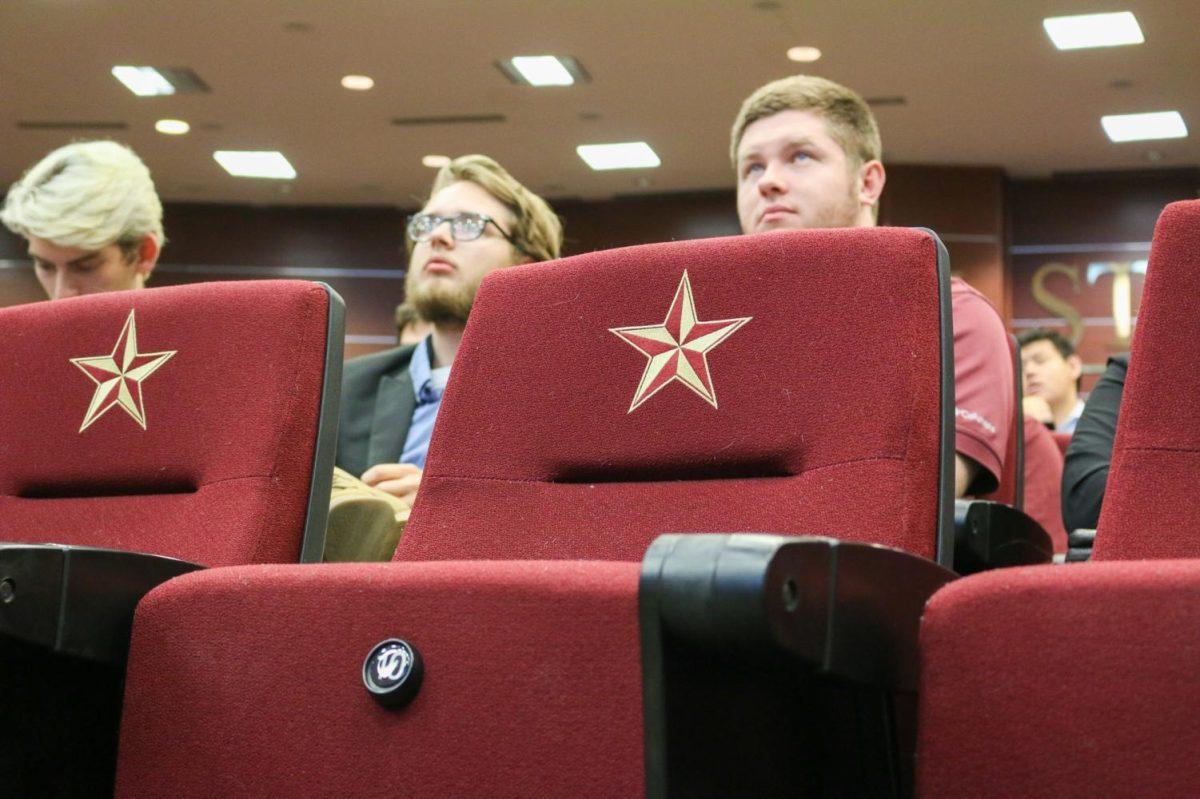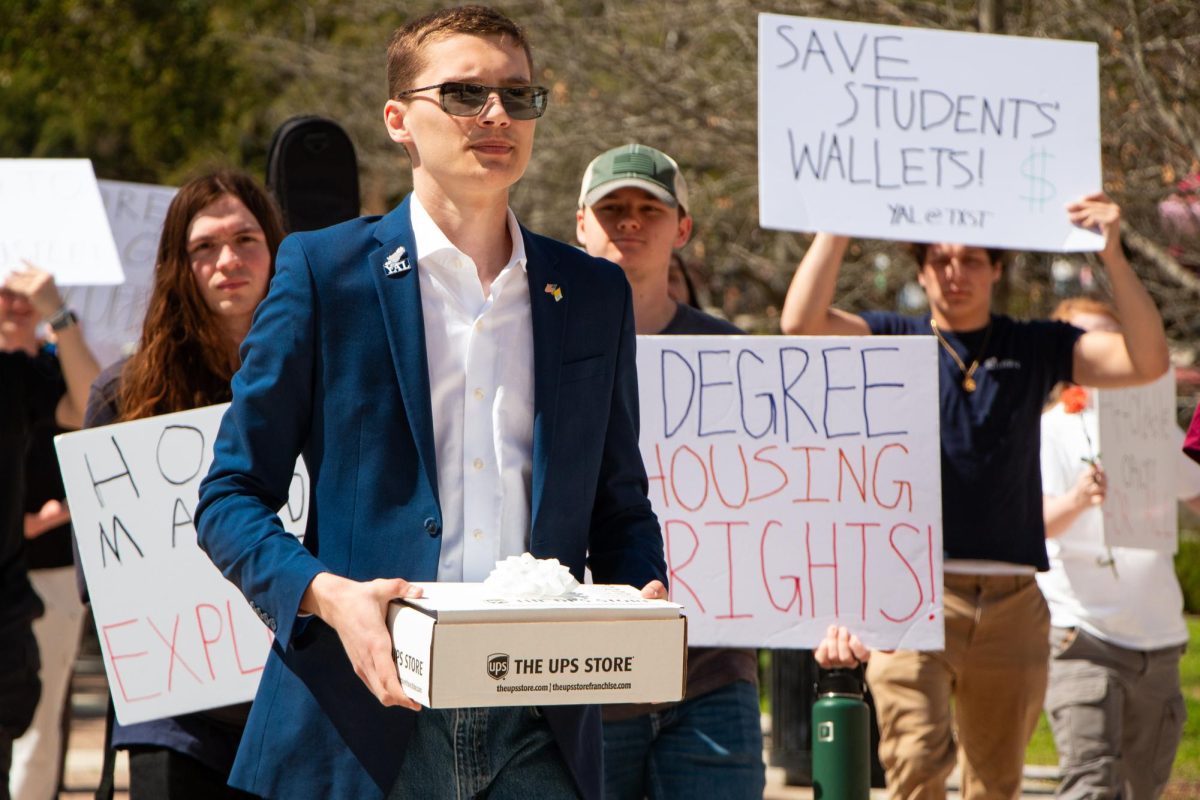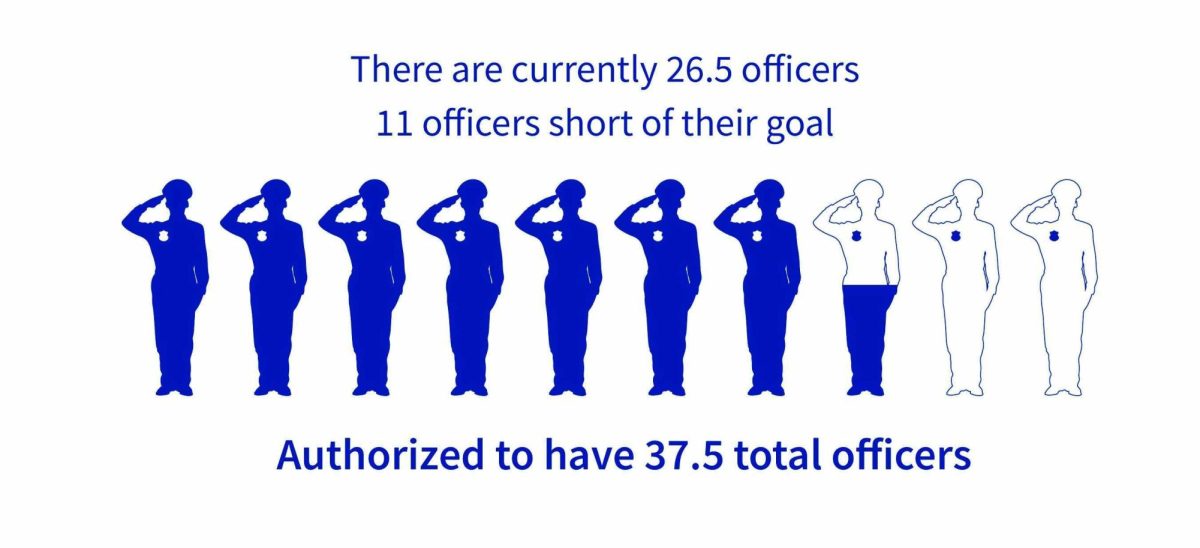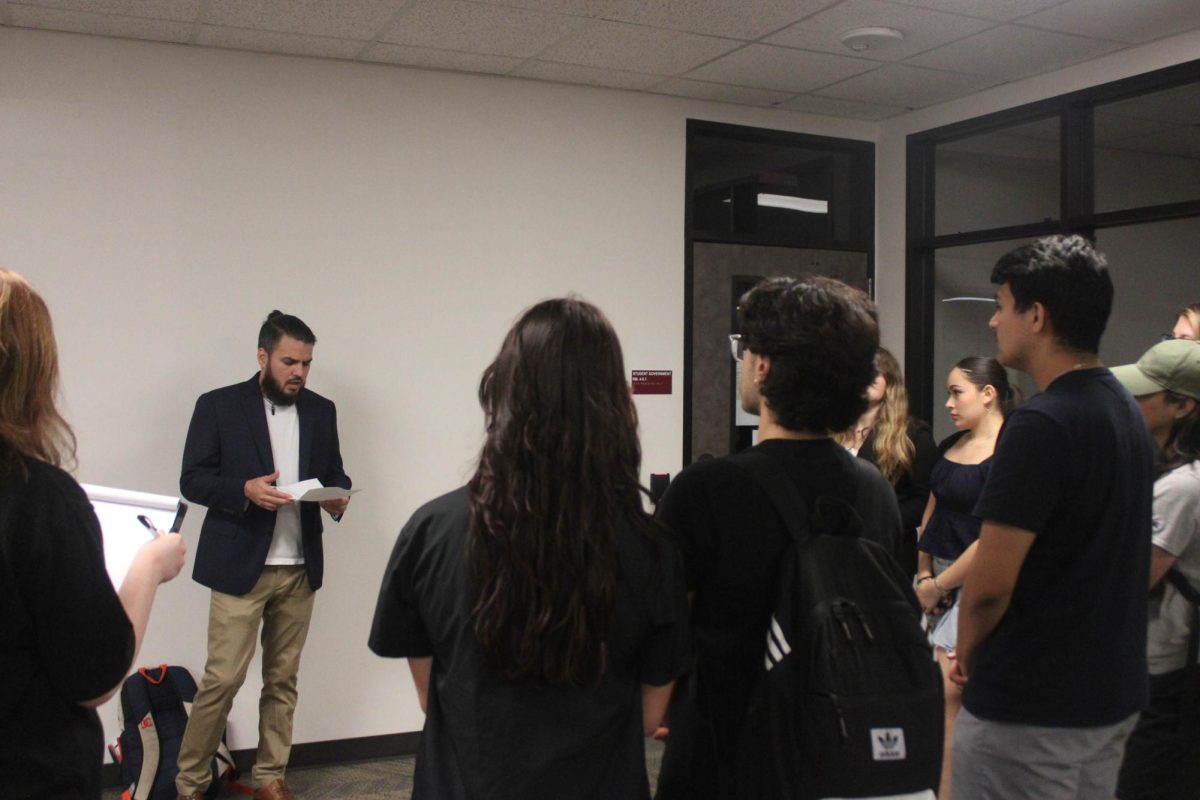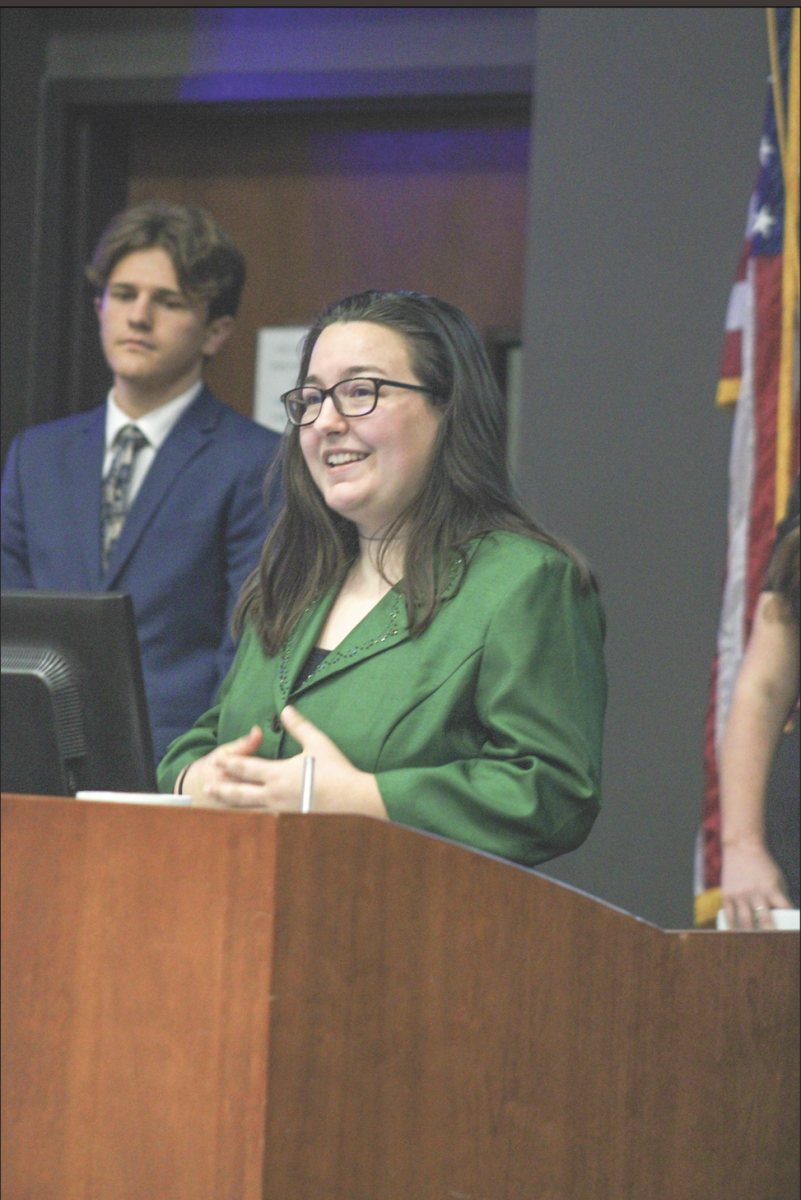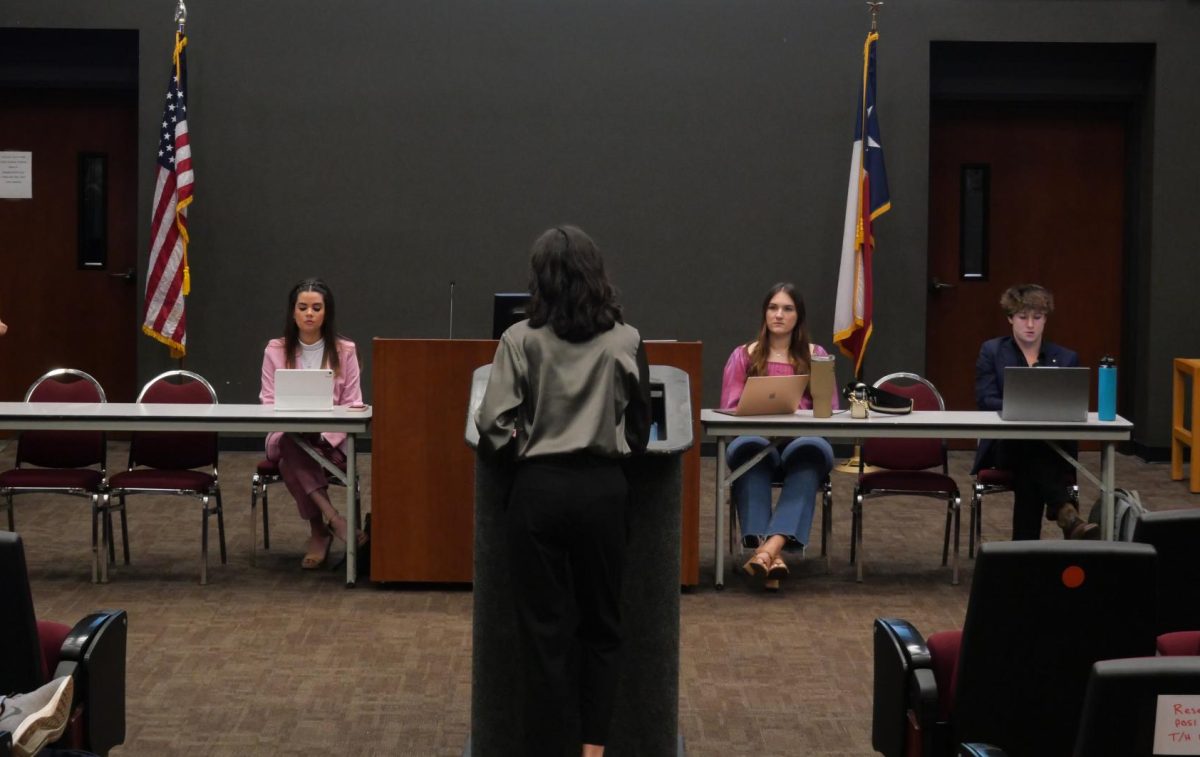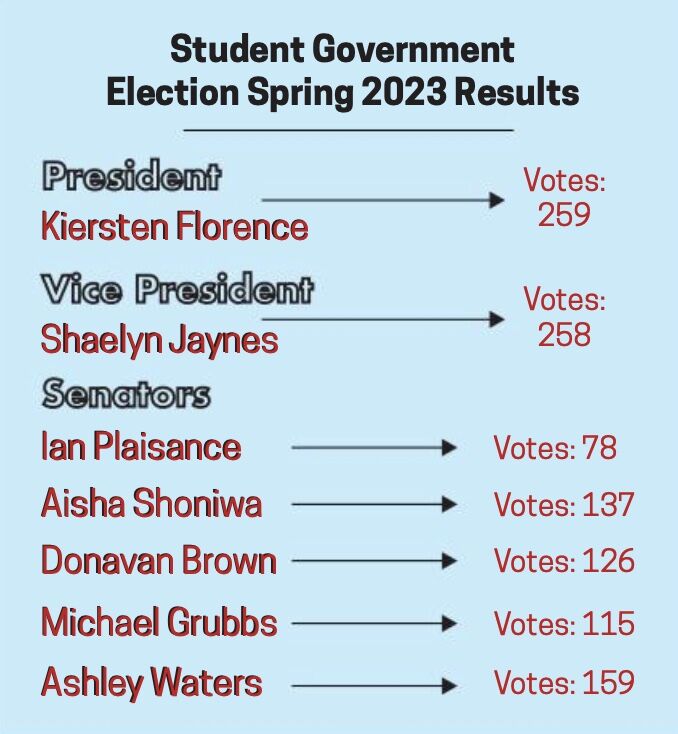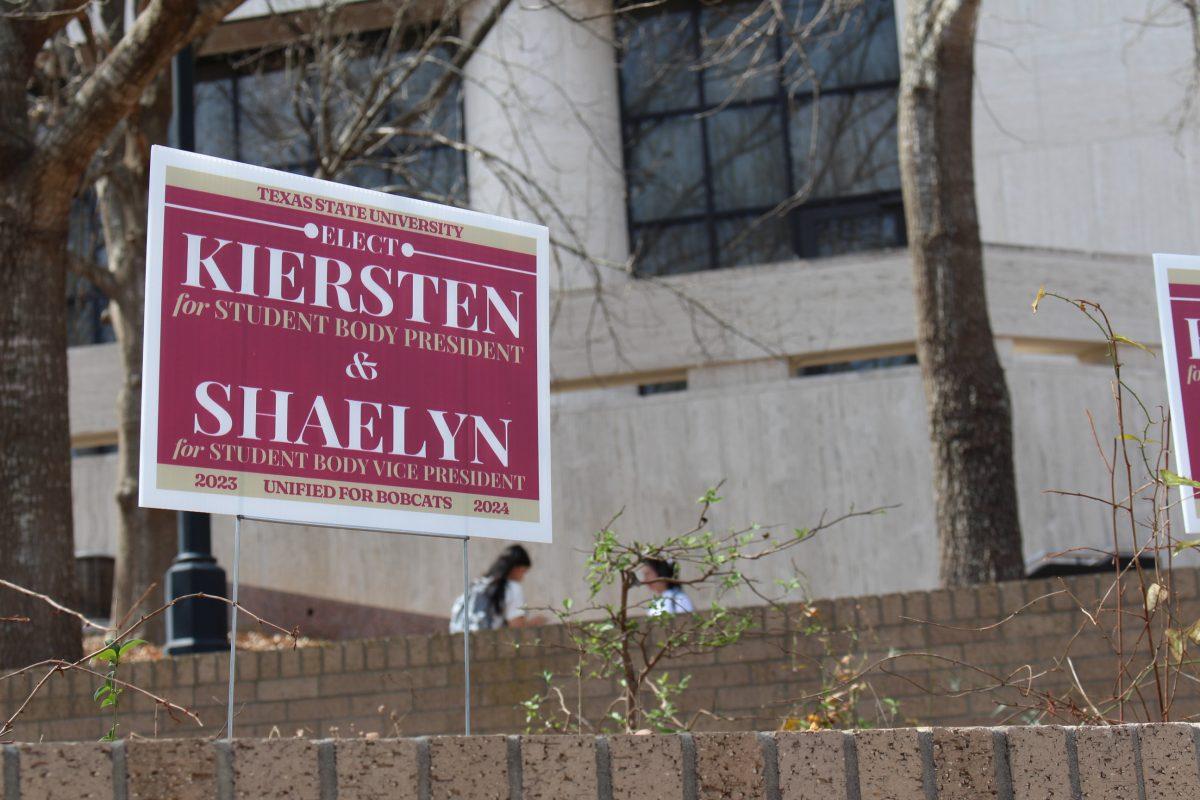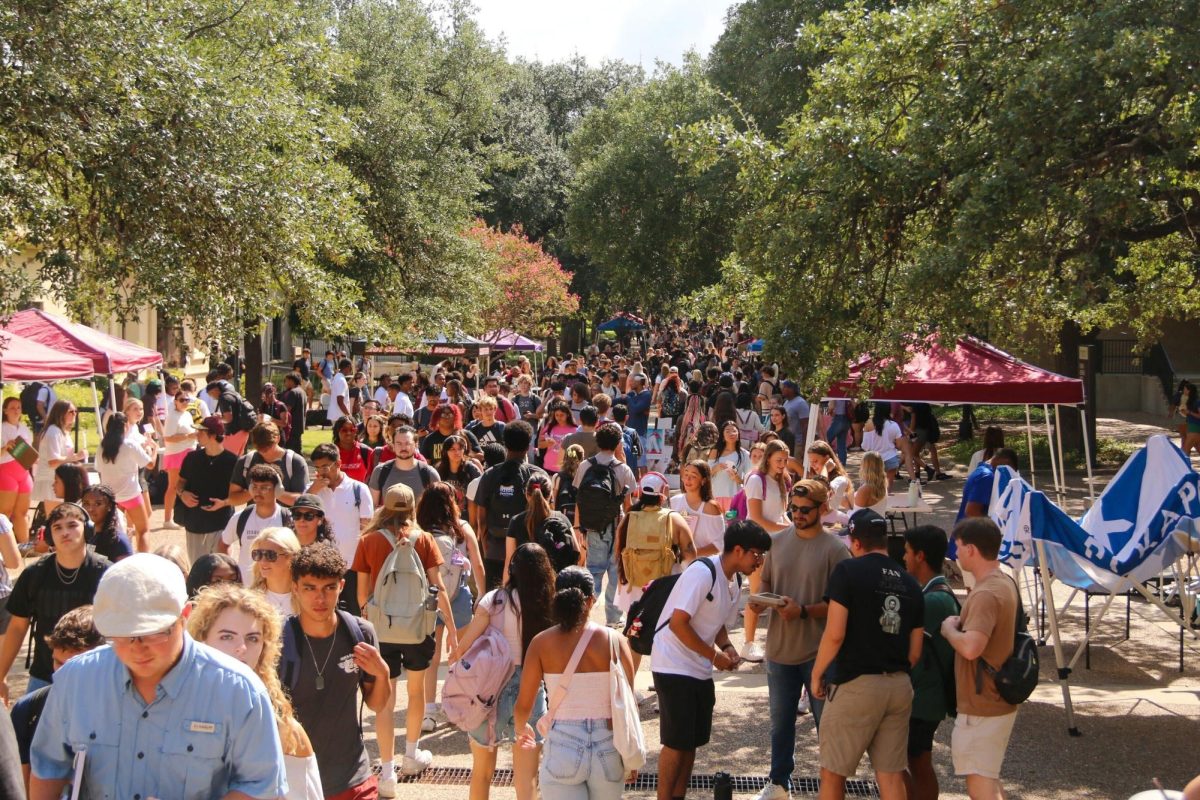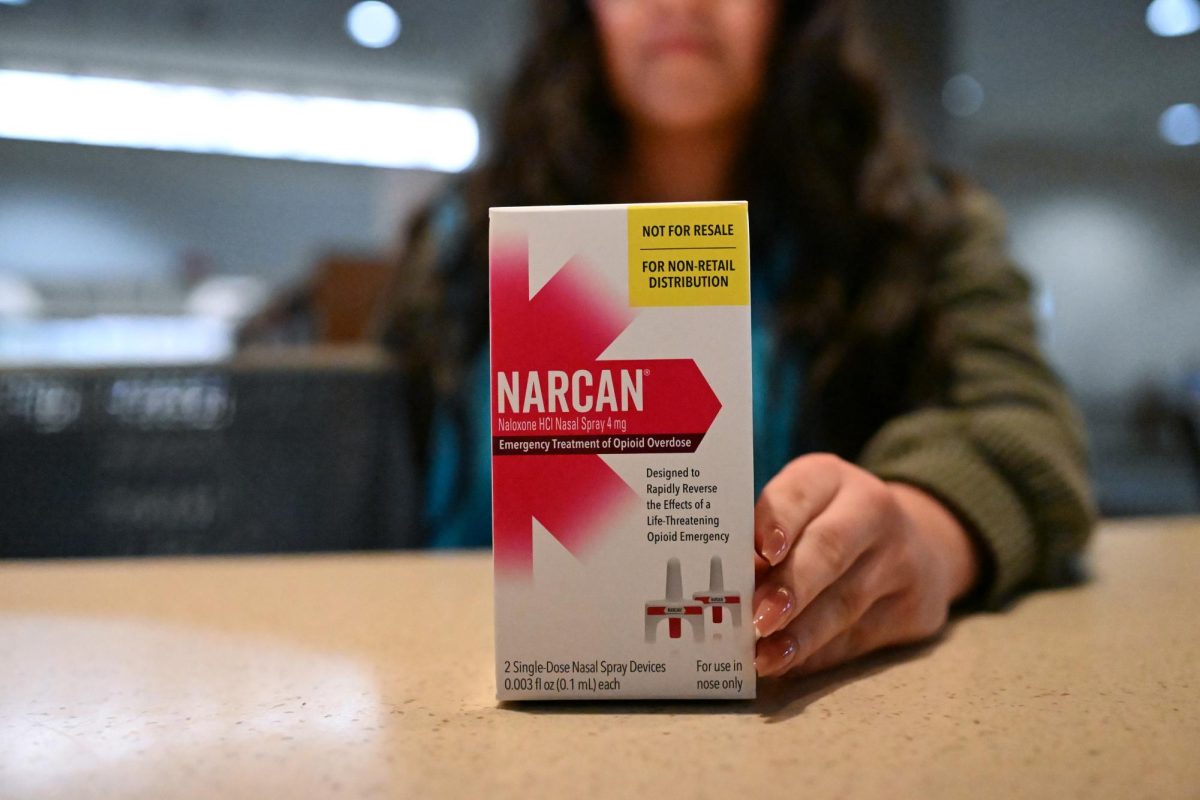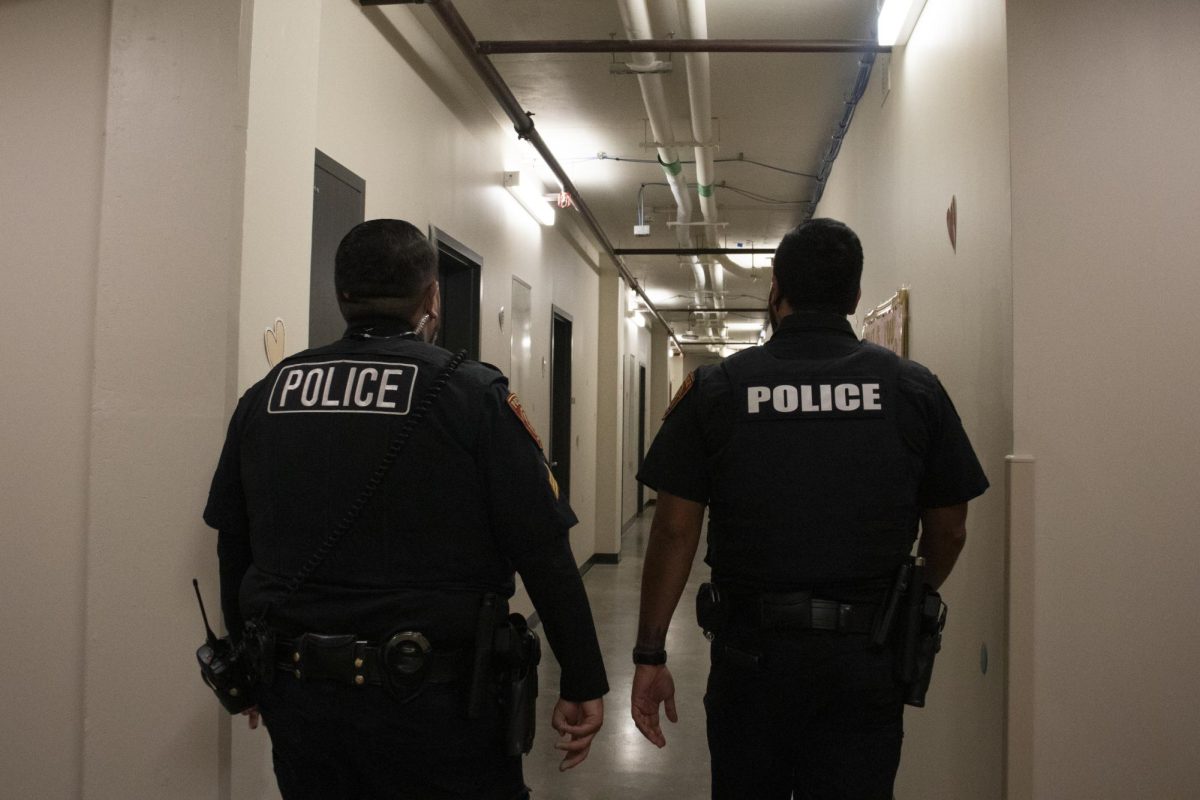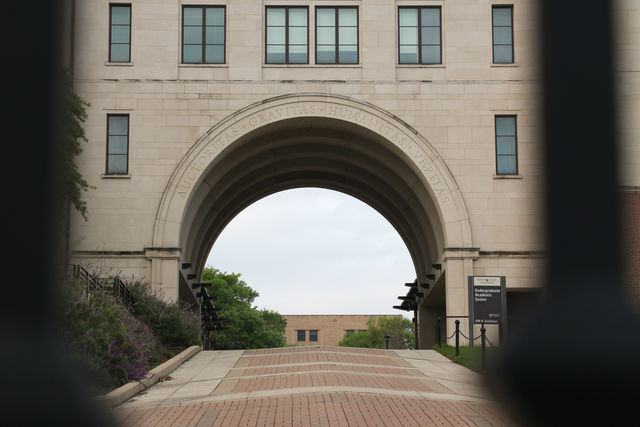Recently, Student Government has faced a drop in student senator retention. A special election is being held Nov. 11-14 to fulfill vacant seats.
Call for a special election is due to student senators leaving the Senate. Out of 30 senators, seven have quit. According to Student Body President Corey Benbow, reasons for dropping retention rates are partly due to time commitment and weekly meetings senators complete yearly.
Benbow said if someone cannot fully commit to representing the student body at the time, they might have to take a break before returning.
“I believe senators made the decision to leave based on the time commitment,” Benbow said. “The best thing you can do when you represent students if you can’t fully commit is understanding when it’s time to take a step back, refocus, re-guide your thought process and then come back in.”
Former junior student senator Alexa Browning left Student Government Sept. 23 due to the time it takes to participate. Time she committed to Student Government included Monday meetings taking up to five hours, Wednesday cabinet meetings, at least an hour in commission and four office hours.
Browning said if students understood what it takes to be part of the Senate, then the dropping retention rate would not be as severe.
“If students knew how much of a time commitment Student Government is before they join, fewer people would be dropping out; it is a really intense time commitment,” Browning said. “(Students) probably will not have time for other organizations because it takes five hours of every single Monday.”
Additionally, Browning left because she believed Student Government was dysfunctional. Browning has been a part of the organization since her freshman year but did not believe the organization was flawed until recently. During meetings, arguments would often break out between senators.
“I felt like Student Government was a little dysfunctional, and I have not really experienced that as much as I have this year,” Browning said. “I feel like a lot of the legislation passed but the administration does nothing with it, so change does not happen. At the meetings, there is a lot of drama and the senators do not like each other and fight.”
According to Browning, fighting lengthens the time of meetings, often resulting in no real action occuring.
“It takes up hours of the meeting because people are fighting with each other,” Browning said. “I did not see anything happening for the betterment of students. It was just senators sitting in a room for hours arguing with each other and then legislation getting passed but not enacted by the administration.”
Browning believes there is a lack of trust between the president, vice president and the Senate because of what has been said during cabinet meetings.
“From being in the cabinet, meetings are supposed to be confidential and a lot of stuff was said by the president and vice president about current and former senators that were unprofessional,” Browning said. “I felt like they didn’t really trust the Senate to do what they wanted them to do, like be a functioning body on their own.”
To better Student Government, Browning said there needs to be more transparency and communication within the administration. The organization needs to focus on getting legislation passed at the time rather than heading off-topic.
“There needs to be a clear line on when it is okay to joke around and talk like friends and when it’s time to do work,” Browning said.
In the past two years, there has been a loss of trust between Student Government and the student body. Student Senator Catherine Wicker said the Conor Clegg impeachment played a significant role in popularity loss because of the problematic issues the former president caused.
Wicker said Clegg’s racist and hurtful remarks online had to do with his deeper lack of understanding about what it means to be a minority on campus.
“Obviously, the impeachment really lost a lot of trust (between Student Government and the student body),” Wicker said. “(Clegg) had racist remarks on social media and said racist and homophobic things that led students to not trust him. They did not feel he was actually representing the larger campus population.”
Wicker and other senators are working to build back the partnership between Student Government and the student body and break free from the bad light.
Student Government is able to regain trust by paying attention to what students want and making sure to speak effectively.
“The best light for Student Government is to redo the way we are communicating with students, look at how we’re doing outreach, understand how we talk to them and the kind of relationship Student Government plays within the student body,” Benbow said. “We’re a voice for representation to the administration.”
According to Benbow, the dropping retention rates and population loss do not correspond with one another, nor is one issue the cause of the other.
“I don’t think the relationship to senators leaving has anything to do with the popularity of Student Government,” Benbow said. “I think it has to do with the fact this is not easy work. It can be taxing on the life of a senator.”
When senators leave, Benbow said he supports their choices and believes well-being is important while a part of any organization.
“I’m very supportive of people’s choices, freedoms and for them to decide what is best for them to do with their personal life,” Benbow said. “It’s important for people to think about their mental and physical health. I want them to understand the service they have given to the student body has been a great one.”
Categories:
Student Government retention rate suffers
October 16, 2019
Recently, Student Government has faced a drop in student senator retention. A special election is being held Nov. 11-14 to fulfill vacant seats. Photo credit: Jaden Edison
0
Donate to The University Star
Your donation will support the student journalists of Texas State University. Your contribution will allow us to purchase equipment and cover our annual website hosting costs.
More to Discover


